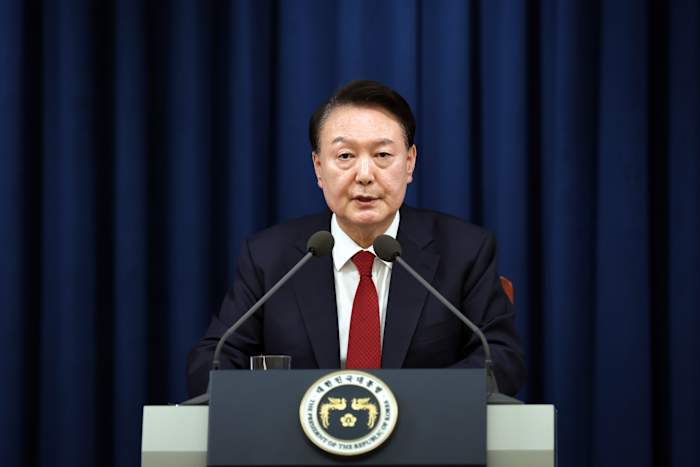Yoon Suk Yeol, whose career was primarily marked by his achievements in law, led South Korea as president amid growing tensions both domestically and with North Korea. Recently, his presidency took a controversial turn with his decision to impose martial law, drawing widespread attention and criticism.
Yoon Suk Yeol came to power in 2022, ending a period of liberal governance in South Korea. His leadership has been characterized by friction with an opposition-controlled parliament and a strained relationship with North Korea. The martial law declaration, based on dubious claims of domestic threats influenced by North Korea, has become a defining moment in his tenure.
Yoon’s journey from a seasoned prosecutor to the presidency was marked by his strong legal background. His early career was shaped by events such as a mock trial against Chun Doo-hwan, South Korea’s military dictator, which forced him into hiding as martial law was extended. This strong legal foundation often reflected his uncompromising and confrontational style, leading to criticisms of being unprepared for political leadership.
Critics argue that Yoon’s presidency suffers from impulsive decision-making influenced by a close circle of advisors rather than broader consensus. His relationship with the parliament has been fraught, with continuous attempts to impeach his top officials and disputes over budget bills.
Domestically, Yoon’s presidency has not been smooth. Allegations of corruption involving him and his wife have emerged, with matters such as accepting luxury gifts creating scandal. These issues have significantly impacted his approval ratings and raised speculation about his motivations for declaring martial law.
Internationally, Yoon’s approach to North Korea has been met with hostility. Initially proposing economic incentives in exchange for denuclearization, his stance quickly soured amid increasing North Korean weapons tests and aggressive rhetoric. Tensions escalated, culminating in provocative acts like sending garbage-filled balloons over the border, targeting his administration.
Yoon’s action to use North Korea as a rationale for his martial law decision draws parallels with South Korea’s past authoritarian regimes that invoked northern threats to suppress dissent. This association raises concerns about democratic backsliding in a nation known for its vibrant democracy.
The martial law decision by Yoon Suk Yeol remains a polarizing move, impacting both his domestic and international standing. As allegations and political tensions continue to rise, his presidency may hinge on navigating these challenges while maintaining South Korea’s democratic integrity.
Source: News4jax














